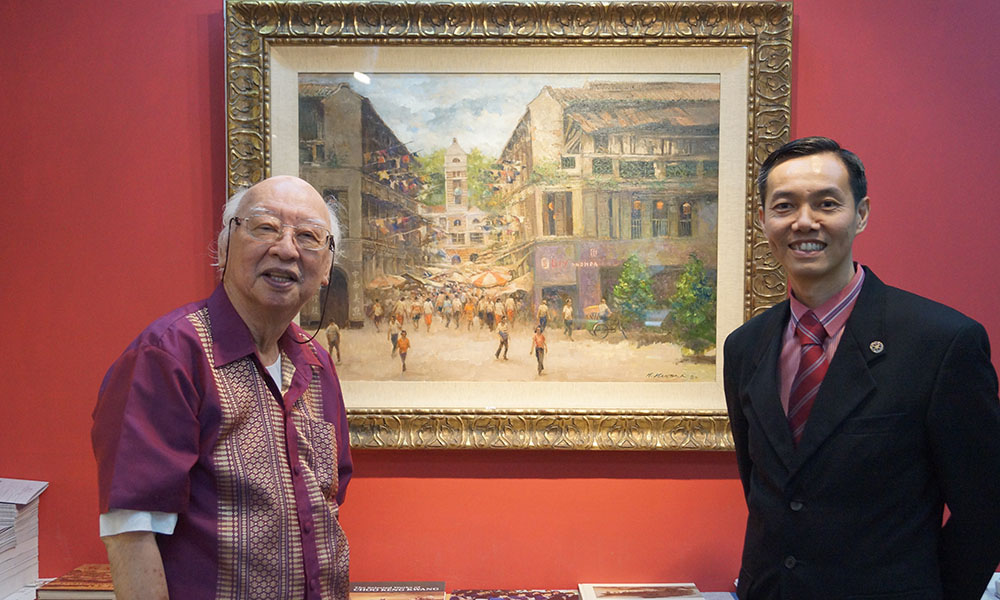By Jade Pearce
Dizi Gui (Standards for Being a Good Student and Child) is an ancient Chinese text for children that teaches moral values and proper etiquette. It was written during the Qing Dynasty during the reign of Emperor Kangxi (1661-1722) by Li Yuxiu.
Poor communication isn’t just frustrating for the listener; it can also lead to mistakes, some of which can be terrible and even fatal.

Beneath the conservative, “old-school” verbose of this ancient classic, one can still find gems of wisdom that remain surprisingly relevant to our modern society. A new lesson is covered in each issue.
As a child, I remember being scolded a lot for mumbling. “Speak up!” my mother would say. “Why do you have to make it so difficult for people to hear you?”
Being soft-spoken by nature, I didn’t take too kindly to her advice. But as I grew older and observed how others around me communicated, I came to realize how important it is to speak clearly and properly.
In this week’s lesson of Di Zi Gui, we learn that “when words are said, say them with weight and relaxation; not hurriedly or quickly, nor in a vague or unintelligible way”.
Poor communication isn’t just frustrating for the listener; it can also lead to mistakes, some of which can be terrible and even fatal.
The Emperor, the Monk, and the Earthworm
There once was a Buddhist monk during the Liang Dynasty, who had cultivated diligently and possessed supernatural powers. People called him “Kowtow Monk”.
Emperor Liangwu heard of the monk and wanted to meet him, so he sent the monk a message, inviting him to the palace.
The monk accepted the invitation and arrived at the palace, just when Emperor Liangwu happened to be playing chess. “Your Majesty, the Kowtow Monk has arrived,” the court messenger reported.
Emperor Liangwu was concentrating so hard on his chess game, trying to figure out how to take one of the enemy’s chessman, that he said loudly “Kill!” The messenger left at once to fulfill the command, and the monk was killed.
After Emperor Liangwu finished the chess game, he remembered that “Kowtow Monk” was waiting for him. He said, “Please invite the Master to come in.”
The messenger replied, “You just ordered me to kill him, so I killed him.”
Emperor Liangwu was shocked and very sad, and deeply regretted what had happened. He asked, “Did Kowtow Monk have any last words?”
A true gentleman doesn’t expose or spread the shortcomings of others, especially behind their backs. Such actions can only create conflict, resentment, hatred, or separation.
The messenger replied, “The monk said that he had been a farmer in one of his previous lifetimes and had once killed an earthworm by mistake when digging the ground with a shovel. Your majesty was that earthworm and that’s why he received retribution today.”
Emperor Liangwu listened with tears in the eyes, and became deeply remorseful.
From this story, it becomes clear that we have to be mindful and clear about the things we say and the instructions we communicate. This way, we can prevent misunderstandings and serious mistakes from occurring.
Han Qi Refrains from Generating Conflict
Besides knowing how to speak, it is also important to know when, or when not to, speak.
Di Zi Gui states that “People may gossip about how good or how bad another person is. If it doesn’t concern you, don’t participate.”
A true gentleman doesn’t expose or spread the shortcomings of others, especially behind their backs. Such actions can only create conflict, resentment, hatred, or separation.
Han Qi, a Prime Minister during the Northern Song Dynasty, was a kind gentleman who believed in being considerate of others’ shortcomings. He was always accommodating and empathetic to those around him.
When Han Qi led an army to quell rebellions in Shaanxi Province, two generals, Yan Shilu and Li Ji, were not in harmony. Yan Shilu used to bad-mouth Li Ji to Han Qi, and vice versa.
Han Qi listened to both but never said a word to the other. As a result, the two generals worked together peacefully from the beginning to the end.
If Han Qi had mentioned to either general what the other person thought of him, he would easily and irreversibly damaged any cordiality between the two generals. It was because he wisely chose not to participate that the generals could cooperate together.
















